Topic

Cetaceans
Cetacea is an infraorder of aquatic mammals belonging to the order Artiodactyla that includes whales, dolphins and porpoises. Key characteristics are their fully aquatic lifestyle, streamlined body shape, often large size and exclusively carnivorous diet. They propel themselves through the water with powerful up-and-down movements of their tail, which ends in a paddle-like fluke, using their flipper-shaped forelimbs to steer
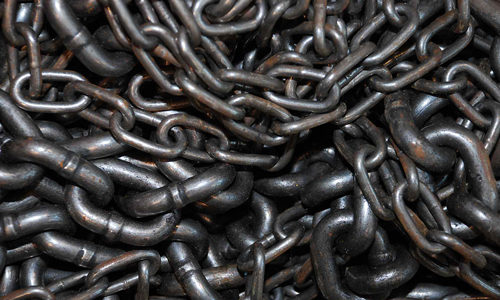
Chains
A chain is a serial assembly of connected pieces, called links, typically made of metal, with an overall character similar to that of a rope in that it is flexible and curved in compression but linear, rigid, and load-bearing in tension. A chain may consist of two or more links. Chains can be classified by their design, which can be dictated by their use

Chamber of Commerce
A chamber of commerce, or board of trade, is a form of business network. For example, a local organization of businesses whose goal is to further the interests of businesses. Business owners in towns and cities form these local societies to advocate on behalf of the business community. Local businesses are members, and they elect a board of directors or executive council to set policy for the chamber. The board or council then hires a President, CEO, or Executive Director, plus staffing appropriate to size, to run the organization.

Chameleons
Chameleons or chamaeleons (family Chamaeleonidae) are a distinctive and highly specialized clade of Old World lizards with 200 species described as of June 2015. The members of this family are best known for their distinct range of colours, being capable of colour-shifting camouflage. The large number of species in the family exhibit considerable variability in their capacity to change colour. For some, it is more of a shift of brightness (shades of brown); for others, a plethora of colour-combinations (reds, yellows, greens, blues) can be see
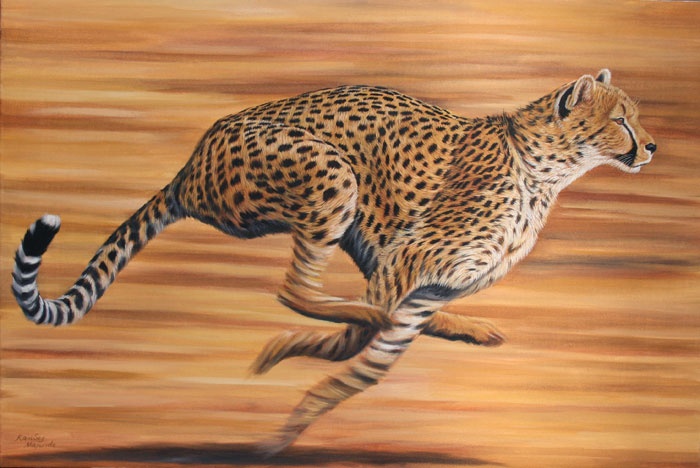
Cheetahs
The cheetah (Acinonyx jubatus) is a large cat and the fastest land animal. It has a tawny to creamy white or pale buff fur that is marked with evenly spaced, solid black spots. The head is small and rounded, with a short snout and black tear-like facial streaks. It reaches 67–94 cm (26–37 in) at the shoulder, and the head-and-body length is between 1.1 and 1.5 m (3 ft 7 in and 4 ft 11 in). Adults weigh between 21 and 72 kg (46 and 159 lb). The cheetah is capable of running at 93 to 104 km/h (58 to 65 mph); it has evolved specialized adaptations for speed, including a light build, long thin legs and a long tail.

Chemical Industry
The chemical industry comprises the companies and other organizations that develop and produce industrial, specialty and other chemicals. Central to the modern world economy, it converts raw materials (oil, natural gas, air, water, metals, and minerals) into commodity chemicals for industrial and consumer products. It includes industries for petrochemicals such as polymers for plastics and synthetic fibers; inorganic chemicals such as acids and alkalis; agricultural chemicals such as fertilizers, pesticides and herbicides; and other categories such as industrial gases, speciality chemicals and pharmaceuticals.

Chemistry
Chemistry is the scientific study of the properties and behavior of matter. It is a physical science within the natural sciences that studies the chemical elements that make up matter and compounds made of atoms, molecules and ions: their composition, structure, properties, behavior and the changes they undergo during reactions with other substances. Chemistry also addresses the nature of chemical bonds in chemical compounds.

Chemists
A chemist (from Greek chēm(ía) alchemy; replacing chymist from Medieval Latin alchemist)[1] is a graduated scientist trained in the study of chemistry, or an officially enrolled student in the relevant field. Chemists study the composition of matter and its properties. Chemists carefully describe the properties they study in terms of quantities, with detail on the level of molecules and their component atoms. Chemists carefully measure substance proportions, chemical reaction rates, and other chemical properties. In Commonwealth English, pharmacists are often called chemists.

Chess
Chess is usually played by two players (called chess players) against each other. It is also possible for one group of chess players to play against another or against one player; such games are often called consultation games. In addition, there is the practice of simultaneous play sessions, when several opponents play against one strong player, each on a separate board.
The rules of the game were basically developed by the 15th century; In modern official tournaments, the rules of the International Chess Federation[6] are applied, which regulate not only the movement of pieces, but also the rights of the judge, the rules of behavior of players and time control. A game played remotely - for example, by correspondence, by telephone or via the Internet - has special rules. There are many variants of chess that differ from classical ones: with non-standard rules, pieces, board sizes, etc. The corresponding section of chess composition is fairy chess. Some aspects of the game of chess are studied in mathematics (for example, the classic “Knight's Move Problem” and “Eight Queens Problem”), including through computer simulation. Chess is usually played by two players (called chess players) against each other. It is also possible for one group of chess players to play against another or against one player; such games are often called consultation games. In addition, there is the practice of simultaneous play sessions, when several opponents play against one strong player, each on a separate board.
The rules of the game were basically developed by the 15th century; In modern official tournaments, the rules of the International Chess Federation[6] are applied, which regulate not only the movement of pieces, but also the rights of the judge, the rules of behavior of players and time control. A game played remotely - for example, by correspondence, by telephone or via the Internet - has special rules. There are many variants of chess that differ from classical ones: with non-standard rules, pieces, board sizes, etc. The corresponding section of chess composition is fairy chess. Some aspects of the game of chess are studied in mathematics (for example, the classic “Knight's Move Problem” and “Eight Queens Problem”), including through computer simulation.

Children
Biologically, a child (plural: children) is a human being between the stages of birth and puberty. The legal definition of child generally refers to a minor, otherwise known as a person younger than the age of majority. Child may also describe a relationship with a parent (such as sons and daughters of any age) or, metaphorically, an authority figure, or signify group membership in a clan, tribe, or religion; it can also signify being strongly affected by a specific time, place, or circumstance, as in "a child of nature" or "a child of the Sixties". There are many social issues that affect children, such as childhood education, bullying, child poverty, dysfunctional families, child labor, hunger, and child homelessness. Children can be raised by parents, by fosterers, guardians or partially raised in a day care center.
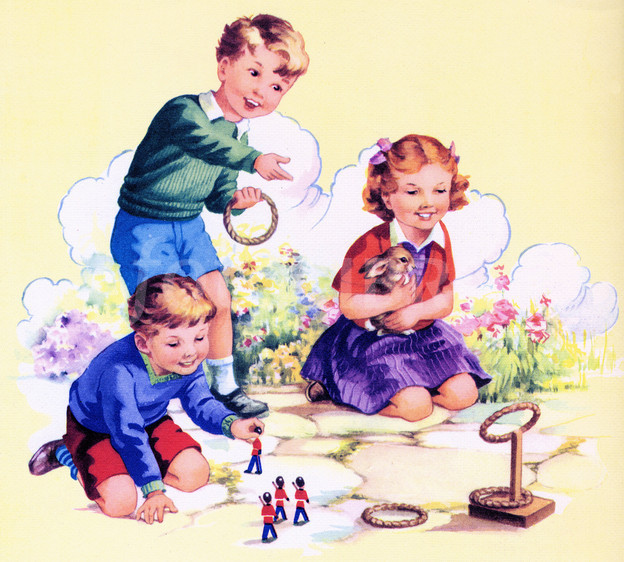
Children's Play
Play is a range of intrinsically motivated activities done for recreational pleasure and enjoyment. Play is commonly associated with children and juvenile-level activities, but may be engaged in at any life stage, and among other higher-functioning animals as well, most notably mammals and birds.
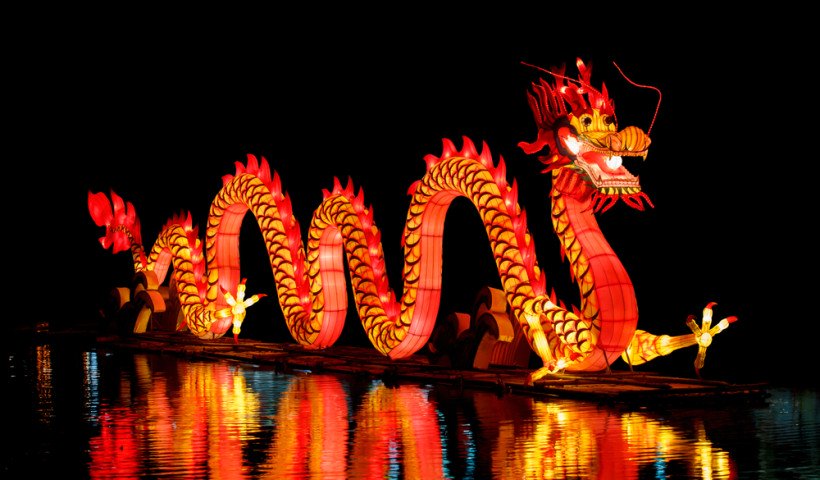
Chinese New Year
Chinese New Year or the Spring Festival (see also § Names) is a festival that celebrates the beginning of a new year on the traditional lunisolar Chinese calendar. Marking the end of winter and the beginning of spring, observances traditionally take place from Chinese New Year's Eve, the evening preceding the first day of the year, to the Lantern Festival, held on the 15th day of the year. The first day of Chinese New Year begins on the new moon that appears between 21 January and 20 February

Choreographers
Choreography is the art or practice of designing sequences of movements of physical bodies (or their depictions) in which motion or form or both are specified. Choreography may also refer to the design itself. A choreographer is one who creates choreographies by practising the art of choreography, a process known as choreographing. It most commonly refers to dance choreography
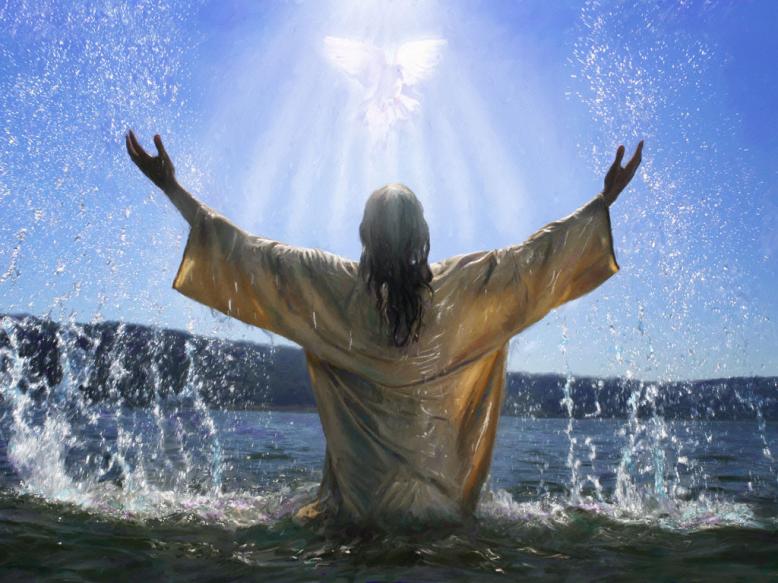
Christian
A Christian is a person who follows or adheres to Christianity, a monotheistic Abrahamic religion based on the life and teachings of Jesus Christ. Christians form the largest religious community in the world. The words Christ and Christian derive from the Koine Greek title Christós (Χριστός), a translation of the Biblical Hebrew term mashiach (מָשִׁיחַ) (usually rendered as messiah in English). While there are diverse interpretations of Christianity which sometimes conflict, they are united in believing that Jesus has a unique significance. The term Christian used as an adjective is descriptive of anything associated with Christianity or Christian churches, or in a proverbial sense "all that is noble, and good, and Christ-like." It does not have a meaning of 'of Christ' or 'related or pertaining to Christ'.

Christianity
Christianity is an Abrahamic monotheistic religion, which states that Jesus is the Son of God and rose from the dead after his crucifixion, whose coming as the messiah (Christ) was prophesied in the Old Testament and chronicled in the New Testament. It is the world's largest and most widespread religion with over 2.3 billion followers, comprising around 28.8% of the world population. Its adherents, known as Christians, are estimated to make up a majority of the population in 120 countries and territories.

Christmas
Christmas or Christmas Day (Old English: Crīstesmæsse, meaning "Christ's Mass") is an annual festival commemorating the birth of Jesus Christ, observed most commonly on December 25 as a religious and cultural celebration among billions of people around the world. A feast central to the Christian liturgical year, it is prepared for by the season of Advent or the Nativity Fast and initiates the season of Christmastide, which historically in the West lasts twelve days and culminates on Twelfth Night; in some traditions, Christmastide includes an Octave. The traditional Christmas narrative, the Nativity of Jesus, delineated in the New Testament says that Jesus was born in Bethlehem, in accordance with messianic prophecies; when Joseph and Mary arrived in the city, the inn had no room and so they were offered a stable where the Christ Child was soon born, with angels proclaiming this news to shepherds who then disseminated the message furthermore. Christmas Day is a public holiday in many of the world's nations, is celebrated religiously by the vast majority of Christians, as well as culturally by a number of non-Christian people, and is an integral part of the holiday season, while some Christian groups reject the celebration. In several countries, celebrating Christmas Eve on December 24 has the main focus rather than December 25, with gift-giving and sharing a traditional meal with the family.

Christmas and Easter
Easter, also called Pascha (Aramaic: פַּסְחָא , paskha; Greek: πάσχα, páskha) or Resurrection Sunday, is a Christian festival and cultural holiday commemorating the resurrection of Jesus from the dead, described in the New Testament as having occurred on the third day of his burial following his crucifixion by the Romans at Calvary c. 30 AD. It is the culmination of the Passion of Jesus, preceded by Lent , a 40-day period of fasting, prayer, and penance.
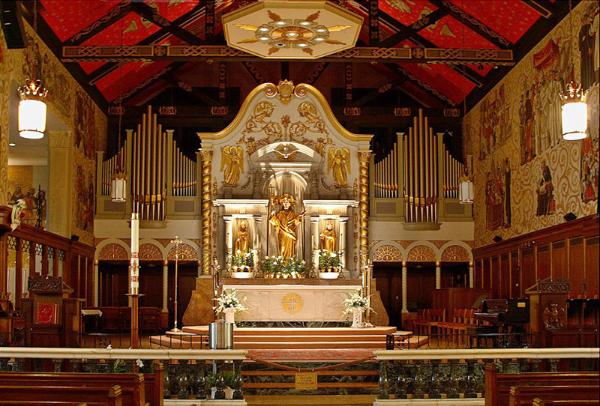
Churches - Cathedrals - Basilicas - Chapels
A church building, often simply called a church, is a building used for Christian religious activities, particularly worship services. The term in its architectural sense is most often used by Christians to refer to their religious buildings, but it is sometimes used (by analogy) for buildings of other religions. In traditional Christian architecture, the church is often arranged in the shape of a Christian cross. When viewed from plan view the longest part of a cross is represented by the aisle and the junction of the cross is located at the altar area. Towers or domes are often added with the intention of directing the eye of the viewer towards the heavens and inspiring church visitors. Modern church buildings have a variety of architectural styles and layouts; many buildings that were designed for other purposes have now been converted for church use; and, similarly, many original church buildings have been put to other uses. The earliest identified Christian church was a house church founded between 233 and 256. During the 11th through 14th centuries, a wave of building of cathedrals and smaller parish churches occurred across Western Europe. A cathedral is a church, usually Roman Catholic, Anglican, Oriental Orthodox or Eastern Orthodox, housing the seat of a bishop.

